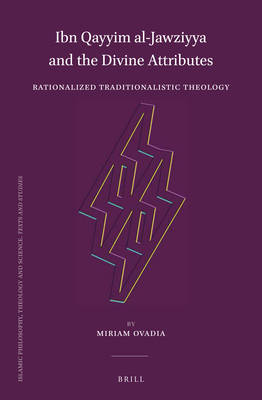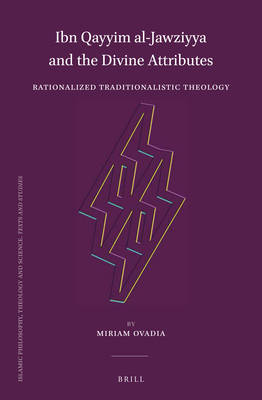
- Afhalen na 1 uur in een winkel met voorraad
- Gratis thuislevering in België vanaf € 30
- Ruim aanbod met 7 miljoen producten
- Afhalen na 1 uur in een winkel met voorraad
- Gratis thuislevering in België vanaf € 30
- Ruim aanbod met 7 miljoen producten
Zoeken
Ibn Qayyim Al-Jawziyya and the Divine Attributes
Rationalized Traditionalistic Theology
Miriam Ovadia
€ 174,45
+ 348 punten
Omschrijving
In Ibn Qayyim al-Jawziyya and the Divine Attributes Miriam Ovadia offers a thorough discussion on the hermeneutical methodology applied in the theology of the Ḥanbalite traditionalistic scholar Ibn Qayyim al-Jawziyya (d. 1350), the most prominent disciple of the renowned Ibn Taymiyya (d. 1328). Focusing on Ibn al-Qayyim's voluminous - yet so far understudied - work on anthropomorphism, al-Ṣawāʿiq al-Mursala, Ovadia explores his modus operandi in his attack on four fundamental rationalistic convictions, while demonstrating Ibn al-Qayyim's systemization of the Taymiyyan theological doctrine and theoretical discourse. Contextualizing al-Ṣawāʿiq with relevant writings of thinkers who preceded Ibn al-Qayyim, Ovadia unfolds his employment of Kalāmic terminology and argumentations; thus, his rationalized-traditionalistic authoring of a theological manifesto directed against his contemporary Ashʿarite elite of Mamluk Damascus.
Specificaties
Betrokkenen
- Auteur(s):
- Uitgeverij:
Inhoud
- Aantal bladzijden:
- 332
- Taal:
- Engels
- Reeks:
- Reeksnummer:
- nr. 104
Eigenschappen
- Productcode (EAN):
- 9789004371293
- Verschijningsdatum:
- 5/07/2018
- Uitvoering:
- Hardcover
- Formaat:
- Genaaid
- Afmetingen:
- 155 mm x 236 mm
- Gewicht:
- 598 g

Alleen bij Standaard Boekhandel
+ 348 punten op je klantenkaart van Standaard Boekhandel
Beoordelingen
We publiceren alleen reviews die voldoen aan de voorwaarden voor reviews. Bekijk onze voorwaarden voor reviews.











